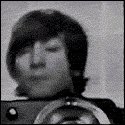|
Do you have any experience teaching high school, and if so, how does it compare? I've thought it might be nice to become a prof someday but all those postgrad years seem like such a lot of work.
|
|
|
|

|
| # ¿ May 3, 2024 05:46 |
|
Cool. Also, are there parts of any Shakespeare plays you still can't quite wrap your head around, that kind of nag at you sometimes?
|
|
|
|
Brainworm posted:Doubting and Believing is great for shaping discussion, too. Whenever you've got a thesis or an idea presented by either a text or a student, dedicate some amount of time to everyone thinking of everything they can to support it. Then dedicate the same amount of time to everyone coming up with everything they can to shoot it down. Then, use that discussion to accept, reject, or refine the idea as it was first proposed. This is a great way to jump start discussion, and a good D/B investment early in a class period will carry the whole thing. Oh this is good. Totally using it if I end up teaching college-level courses again. How do you feel about Bloom's Taxonomy? I've always thought it was pretty useful for telling students what kind of questions to come up with. As a former high school teacher I always considered it a big part of my job to prepare students for college. To that end, my number one goal was to teach them how to gracefully integrate quotations into their sentences. Also I'm developing an alternative approach to vocabulary that focuses less on your verbs and adjectives and more on words (usually adverbs) that help connect ideas in different ways (theretofore, whereby, etc). Is there anything else you wish high school teachers would push?
|
|
|
|
^^^ I'm gonna butt in and recommend Pinsky's The Sounds of Poetry
|
|
|
|
Do you have any recommendations about non-fiction books that provide social context for certain literary movements or periods? I find the concept of salons, for example, a little impenetrable. I understand what they were, basically, but I find myself wanting a rundown of what would occur there, where and when their popularity rose and fell, some anecdotes or stories about notable ones, et cetera. Something specifically about that would be cool but anything you've read that helped you understand something cultural about great literature would be interesting to hear about.
|
|
|




